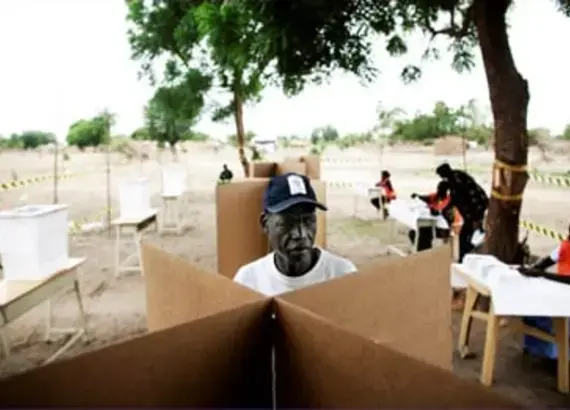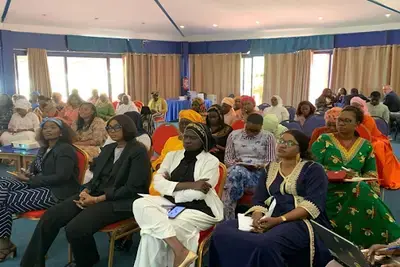
Success Story
Southern Sudan Citizens Share Their Views on the Referendum
As Southern Sudan prepares for a referendum that will determine whether it will become a separate country, public opinion research by NDI shows significant support for independence and a strong desire for the referendum to be held on time.
In a report released this month, NDI cited findings from 63 focus groups involving nearly 800 participants, the vast majority of whom said they favored secession from the North. Among the most frequently cited reasons were feelings of oppression and marginalization under the North and the ability of the South to control its own natural resources.
Holding the referendum on Jan. 9, 2011 – as is currently scheduled – was also of paramount importance to the participants. “Southern Sudanese are insistent that the vote take place as scheduled – any delay emanating from the Government of National Unity (GoNU) will cause massive disappointment and disruption,” the report said. Citizens would be more open to a delay imposed by the Government of Southern Sudan (GoSS), but it would have to come with a strong rationale. Even then, about half of the focus groups indicated a GoSS-supported delay would not be accepted.
“Despite the enthusiasm for secession, participants express strong concerns about
challenges an independent GoSS would face: corruption, ethnicity-based hiring and
nepotism/tribalism,” NDI said. “Apprehensions about the economy, as well as concerns about insecurity along the North-South border, are also widespread.”
The focus group study – the 11th that NDI has conducted in Sudan since 2004 – was based on 63 group discussions conducted with 779 participants in Southern Sudan. It was the Institute’s first study that went in-depth on the referendum, though discussions also covered voter registration for last April’s elections, development, security and governance. Among the other key findings were:
- Southern Sudanese participants support the right of Southerners in the North to vote in the referendum but want them to return “home” to cast their ballots;
- Participants want the international community to play an active role in the referendum, particularly by monitoring the vote;
- Participants take an extremely hard line against the sharing of oil revenue with the North if the referendum vote is for independence; and
- Most participants feel the relationship between tribes in the South will improve once separation occurs.
Based on these findings, and others, the Institute recommended steps for the GoSS and the GoNU to take in the months leading up to and following the referendum. The recommendations detail means of carrying out voter education efforts, managing expectations about the referendum and post-referendum process, creating a secure environment for the referendum, and creating a more representative and responsive GoSS, regardless of the results.
Specific recommendations include:
- Place an emphasis on educating the public about rules and regulations – especially voter eligibility – to clarify who will be voting and where to prevent potential misunderstandings;
- If a delay is necessary, undertake a Southern Sudan-wide discussion, with GoSS officials prominently featured, about the reasons for the delay, the proposed new timeline and the retained guarantee of self-determination;
- Educate Southern Sudanese about the necessity of post-referendum compromises to maintain peace and to ensure a politically and economically viable South;
- The GoSS must convince Southern Sudanese citizens that from both an economic and security perspective, moving oil through the North is necessary at least in the short-term; and
- Discuss the problem of tribalism in government openly with the public and communicate plans for addressing it.
An electronic copy of the report is available in English here.
Pictured Above:: Sudanese man voting (Photo by Pete Muller)
Published October 25, 2010



